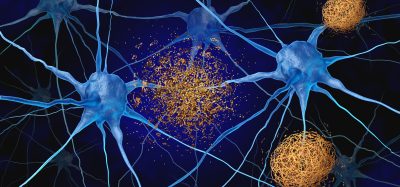Managing CGT trials: the role of IRT from discovery to clinical development
Posted: 30 July 2025 | Cara Woodruff (Director of Product Management - IQVIA IRT) | No comments yet
Discover how interactive response technology (IRT) is revolutionising the management of cell and gene therapy (CGT) trials by streamlining complex workflows, ensuring regulatory compliance and enhancing patient outcomes.


The journey of cell and gene therapies from preclinical discovery to clinical trials is complex and challenging, impacting every team member involved, from researchers in the lab to patients receiving treatment. As CGT trials require innovative and flexible solutions, the need for technology such as interactive response technology (IRT) has become crucial in streamlining trial workflows, ensuring data integrity, and maintaining regulatory compliance as therapies advance from preclinical stages.
One advanced solution that has emerged as a key tool is IRT. These digital platforms are designed to manage and automate critical trial processes, especially related to drug management. IRT systems ensure that investigational products are tracked throughout the entire clinical journey, from preclinical stages through to final treatment delivery, improving operational efficiency and reducing errors in clinical trials.
Pioneering technology-enhanced process control
The success of CGT trials depends on maintaining strict control over critical process points while retaining the flexibility to adapt to the trial’s complexity. Modern IRT platforms enable this by providing real-time tracking of treatments across various stages, from pre-use to ready-to-use and in-transit. This comprehensive visibility allows trial managers to maintain full oversight and swiftly address emerging issues as they arise.
Automation now plays a central role in discovery. From self-driving laboratories to real-time bioprocessing
This report explores how data-driven systems improve reproducibility, speed decisions and make scale achievable across research and development.
Inside the report:
- Advance discovery through miniaturised, high-throughput and animal-free systems
- Integrate AI, robotics and analytics to speed decision-making
- Streamline cell therapy and bioprocess QC for scale and compliance
- And more!
This report unlocks perspectives that show how automation is changing the scale and quality of discovery. The result is faster insight, stronger data and better science – access your free copy today
Foundation and initial setup
Modern IRT platforms are designed with flexible architectures that adapt to the specific requirements of each trial from the outset. The process typically begins with pre-assignment and tracking of apheresis collection bags, which requires meticulous documentation of collection dates, volumes and handling procedures. As materials progress through the manufacturing process, these platforms maintain rigorous oversight of status changes, location tracking, and the chain of custody documentation.
A defining feature of IRT platforms is their sophisticated handling of the release process with individual expiration dating. The personalised nature of CGT treatments means each batch follows its own unique timeline with specific handling requirements. IRT systems dynamically generate and track expiration dates, ensuring treatments reach patients within their viable windows. This capability becomes crucial during the transition from collected materials to final manufactured treatment, where there is no room for error.
Partnership and consultation
Success in CGT trials requires more than advanced technology – it demands a true partnership between sponsors and technology providers. The most effective IRT providers have evolved beyond their role as software vendors to become strategic partners in trial success. They bring valuable experience that help sponsors avoid common pitfalls and design efficient processes that satisfy regulatory requirements while minimising errors.
Different sponsors bring varying levels of experience to CGT trials, and effective IRT providers adjust their approaches accordingly. For emerging biopharma companies new to CGT trials, providers offer comprehensive consultation services to navigate study complexity. More experienced sponsors might require specialised support for scaling operations or optimising existing processes.
CGT problem: IRT solution
IRT brings tangible value to the CGT clinical trial ecosystem by addressing several foundational challenges:
Manufacturing complexities:
The manufacturing process for CGT is one of the most challenging aspects of these trials. Unlike traditional investigational products (IP), advanced therapies require individualised biological production processes, including cell isolation, genetic modification, expansion and preservation. Each patient’s treatment demands precise coordination between collection sites, manufacturing facilities and treatment locations, creating a complex web of interdependent operations. Unlike traditional IP, manufacturing challenges in CGT can directly impact both patient treatment and trial progress.
Patient recruitment:
CGT trials face unique recruitment and retention challenges, particularly with rare disease populations. Modern IRT platforms address these through advanced patient management features and integrations. IRT platforms facilitate decentralised trial approaches by coordinating home visits, local lab collections and remote monitoring.
CGT trials face unique recruitment and retention challenges, particularly with rare disease populations.
Through mobile health integrations and other technologies, they support virtual visits, electronic consent and patient-reported outcomes, all while ensuring regulatory compliance. These platforms also track compliance and coordinate patient-facing activities, creating a streamlined trial experience that enhances retention and maintains comprehensive documentation.
Logistics:
IRT systems integrate with monitoring devices to track storage conditions and shipping environments for CGT products, maintaining treatment viability through real-time oversight and alerts. The platforms monitor cryogenic storage requirements (below -150°C) and document the complete chain of custody from manufacturing through administration. The systems manage backup protocols at storage facilities and coordinate between distribution networks, couriers and treatment schedules. Through advanced scheduling algorithms, they optimise delivery timing while minimising transportation risks. IRT platforms track specialised courier performance and provide real-time visibility of product location and condition. This comprehensive logistics management ensures treatments reach patients within required specifications while maintaining complete documentation for regulatory compliance.
Data management:
As a central hub, IRT platforms integrate data from labs, drug depots, clinical sites and follow-up centres, tracking parameters from cell processing through long-term monitoring. Their cloud architecture enables secure data-sharing with strict access controls and automated reconciliation.
As a central hub, IRT platforms integrate data from labs, drug depots, clinical sites and follow-up centres, tracking parameters from cell processing through long-term monitoring.
IRT systems support standardised data collection through configurable forms and validation checks, adapting to evolving requirements while maintaining consistency. Built-in validation processes verify data accuracy and system functionality, creating comprehensive documentation for regulatory compliance.
Regulatory compliance:
IRT platforms maintain data integrity in CGT trials by providing a single source of truth and reducing manual entry errors and reconciliation issues. They incorporate compliance features that ensure adherence to good manufacturing practice (GMP) requirements through audit trails and access controls. These systems navigate complex regulatory frameworks across jurisdictions through integrated intelligence tracking. They maintain current standards for product characterisation and safety monitoring, automatically flagging when procedures need adjustment for regional compliance. IRT platforms ensure harmonised documentation practices while accommodating regional variations, tracking regulatory interactions and implementing quality control checks. This comprehensive approach supports the success of multi-region trials while maintaining regulatory compliance throughout the trial lifecycle.
Cost management:
Cost management in CGT trials is complex due to the advanced requirements of these therapies. IRT platforms offer drug forecasting and optimisation tools that monitor their use across sites, ensuring the right treatment is available to the patient at the right time, while preventing stock-outs and costly missed doses. These systems integrate with supply chain management to minimise waste by tracking inventory and optimising ordering patterns. Through comprehensive data collection, IRT platforms enable precise initial supply forecasting as well as automated resupply optimisation, which helps organisations identify efficiency opportunities while preserving trial quality and integrity.
Key aspects of IRT in clinical trials include:
- First, IRT manages patient randomisation. When a patient enrolls in a trial, the IRT system automatically assigns them to a treatment group according to the trial protocol while maintaining the blind
- Second, IRT provides real-time data management. Site staff can access the system to enter patient data, record visits, manage drug assignments and handle various trial-related tasks. This ensures all trial activities are properly documented and tracked
- Third, IRT supports clinical supply chain management. The system monitors drug expiration dates, tracks temperature-sensitive products and manages distribution to ensure sites have adequate supplies while minimising waste
- Fourth, IRT maintains regulatory compliance by creating detailed audit trails of all actions taken in the trial. This includes who accessed the system, what changes were made and when activities occurred.
For CGT trials specifically, IRT systems have evolved to handle additional complexities, like:
- Tracking individual patient samples and treatments through manufacturing
- Managing complex chain-of-custody requirements
- Coordinating time-sensitive delivery of personalised therapies
- Monitoring storage conditions for temperature-sensitive materials
- Integrating with various laboratory and manufacturing systems.
In essence, IRT serves as the operational backbone of modern clinical trials, ensuring efficient trial execution while maintaining data integrity and regulatory compliance.
Outlook and industry evolution
The rapid evolution of gene therapy presents increasing challenges in protocol complexity, patient populations and therapeutic applications. IRT platforms must innovate to meet these demands while maintaining security and reliability.
Successful CGT trials require precise orchestration of complex processes. Organisations should select IRT platforms and implementation partners that balance flexibility with control and that bring deep experience and consultative approaches. This foundation enables sponsors to advance treatments while managing logistics and maintaining regulatory compliance.
The future demands adaptable systems to accommodate new technologies and requirements. Continued collaboration between industry, academia and regulatory authorities will be crucial for advancing trial management strategies and bringing revolutionary treatments to patients.
Meet the author


Cara Woodruff – Director of Product Management, IQVIA IRT
Cara Woodruff is an experienced biopharmaceutical research and development professional with over 29 years in the industry. As Director of Product Management at IQVIA IRT, she is responsible for executing product strategy, defining product vision and developing roadmaps. She leads product release cycles using agile methodologies, collaborating with cross-functional teams to deliver high-quality, high-value solutions. Throughout her career, Cara has held various roles, including IT Product Owner, IT Business Partner, Integrated Processes and Technologies POC Project/Product Manager, and Predictive Analytics Lead SAS Developer. She has a strong background in biostatistics and clinical data programming, with experience as a senior SAS statistical programmer, statistical programming manager, and associate biostatistician.
Related topics
Assays, Cell Therapy, Clinical Trials, Drug Discovery Processes, Personalised Medicine, Regenerative Medicine, Therapeutics, Translational Science
Related organisations
IQVIA








